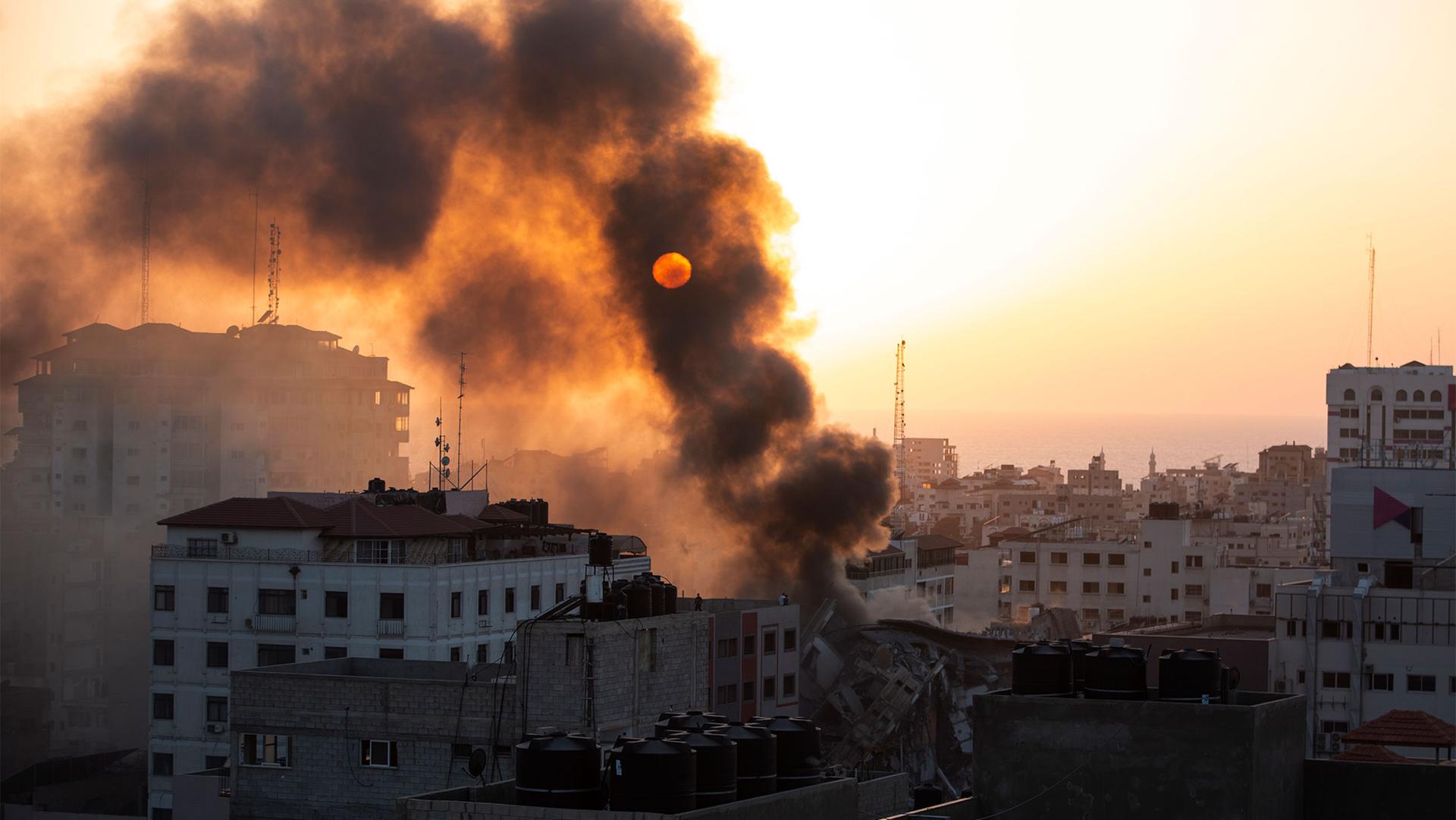Dozens of Palestinians and seven people in Israel have been killed since fierce clashes erupted between the Israeli military and rocket squads in the Gaza Strip.
The Health Ministry in Gaza said 16 children and five women were among the dead, with at least 365 others wounded. One Israeli soldier has died as well as three women and two children in Israel.
This has been the heaviest fighting between the two sides since the 2014 Gaza war.
Related: Violence between Israel and Palestinians escalates
The current violence has coincided with the Muslim fasting month of Ramadan. Critics say heavy-handed Israeli police measures in and around Jerusalem’s Old City helped stoke nightly unrest. Another flashpoint has been the east Jerusalem neighborhood of Sheikh Jarrah, where dozens of Palestinians are under threat of eviction by Jewish settlers.
Confrontations erupted last weekend at the Al-Aqsa mosque compound. Over four days, Israeli police fired tear gas and stun grenades at Palestinians in the compound who hurled stones and chairs at the forces. At times, police fired stun grenades into the carpeted mosque.
On Monday evening, Hamas began firing rockets from Gaza. From there on, the escalation was rapid.
Meanwhile, US President Joe Biden has said that “Israel has a right to defend itself.”
Biden said he spoke with Israeli Prime Minister Benjamin Netanyahu amid the dayslong outbreak of violence.
Related: Israel rejects ICC probe, saying it lacks jurisdiction
Mariam Firwana, a mother of three in Gaza City, tells The World’s host Marco Werman that a steady stream of explosions has been shaking her home and traumatizing her young children.
Marco Werman: What is the situation like right now where you are?
Mariam Firwana: All the houses around the area are trembling and there were three children who were killed inside their car. They were in the market. They were buying some fish and they were targeted here in Gaza right now. So, the situation is very, very bad. You cannot imagine. This is the worst one.
You have small children, as you said. How have they been dealing with this?
I have three children. They don’t know what’s happening around them. And I don’t give them every detail. I said to them that it’s just a war between two parties here in Palestine. And I don’t want them to know more specifics of this problem. I don’t want them to grow up with this problem inside them. You know what I mean?
Yeah.
I am not afraid of F-16s or F-35s, the new one, but I am afraid the of the gunboats and the tanks. They don’t know where they bombed, you know what I mean?
Yeah. Your children, were they able to sleep at all last night?
When they hear a huge bomb or something like that, they run to the salon because it’s safer than their bedrooms, because of the windows in the bedrooms and the glass is over their heads. So, they ran to the salon. And me and my husband, too. For now, I keep them busy. I give them stories to read as there are huge bombings. And I wanted to distract them. I don’t want them to focus on what’s happening around them. Actually, in the first days, I told them that this is fireworks, not the rockets. But after that, I told them the truth and we are awaiting our destiny, actually. As my kids ask me, “Mom, when is our turn?” They mean when they will be dead.
Oh no.
Because they are seeing everything around them is destroyed. And I try not to let them see what’s happening through social media or TV, but they see. And the ones they see, it’s children their ages: “Mom, who killed them? Why? They are children. And will they kill me too?”
I can’t imagine trying to parent through a situation like this. How on earth do you answer a question like that from one of your children?
For two years, I tried to emigrate to any European country or any country, so that it’s safer than here in Gaza. But, all were rejected. So, we accept our destiny and stay here like others.
Are you able to leave your house right now and buy necessities like food?
No, we cannot. They target every car going down the street.
So, how are you dealing, Mariam, with the basic necessities like food?
No, no, we are in Ramadan, the holy month. We are fasting around 16 hours daily. Today is the last day of the holy month. Tomorrow is our celebration with Eid al-Fitr. And we cannot celebrate with our families in this Eid because of this situation. And today in the morning after 9 a.m., they targeted a house — a civilian’s house — without warning. They killed a pregnant woman and her two kids, and the father is in the hospital. Without warning.
Wow. Really tragic. Is there a bomb shelter you or any of your friends can go to?
No. No. That’s the difference between us and the people inside Israel. They have shelters. They have alerts warning them if there are rockets around them. But, we don’t have them. We suddenly found ourselves in the tomb or in the hospital. That’s it.
Mariam, one last question. Do you feel Hamas is protecting you?
Maybe they are defending us, but they are not protecting us, they cannot. They cannot.
This interview has been lightly edited and condensed for clarity. The Associated Press contributed to this report.
Our coverage reaches millions each week, but only a small fraction of listeners contribute to sustain our program. We still need 224 more people to donate $100 or $10/monthly to unlock our $67,000 match. Will you help us get there today?
